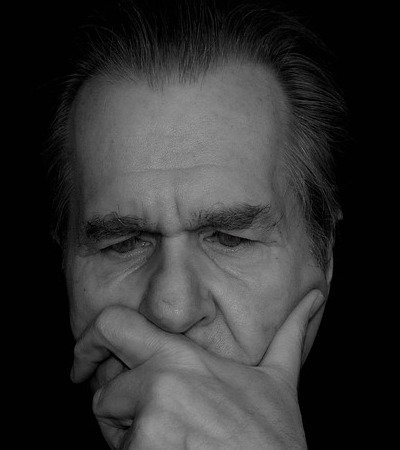Why Do People Believe Bullshit? [research]
Yesterday's satirical swipe at New Age profundity was merely a snack before the main course. Why do people believe bullshit? Researchers at the University of Waterloo, Canada, decided to investigate.

Of course, people believe in all kinds of bullshit: political bullshit; marketing and advertising bullshit; "Ooh, that'll be expensive!" bullshit; "I know how to fix that!" bullshit; and "I love you". But the researchers focussed on what they termed "pseudo-profund bullshit"; statements that appear to have some profound wisdom but are actually quite vacuous.
To drive this point home, they devised randomly created pseudo-profound statements; they have to be grammatically correct but the concepts were derived from a database of New Age buzzwords. The research sought to find out just how "profound" people found them.
The brain is such a complex system and uses up so much energy that one of its primary mechanisms seems to be to minimise energy use. Ironically, I think, such drive for efficiency also manifests as a kind of mental laziness. So many processes happen in the background; even what we think of as decision-making is often pre-decided by unconscious processes. What we think of as our awareness is often like a traffic cop on a motorway.
So, it won't come as a huge shock that most people thought that the randomly generated pseudo-profound statements were manifestations of true wisdom. The default mode for most people is to believe anything - including bullshit. This is more efficient than evaluating every proposition; we all have the experience of being locked in the same idea going round and round in our mind - that's not efficient and not fun! As long as the new statement does not contradict any strongly held beliefs, then it can come right in and find a cozy patch in our mind - it doesn't suddenly become a core belief, but is allowed to wander around unimpeded.
But isn't this somewhat depressing? Isn't this why the world is so full of bullshit? Is there anyway to distinguish bullshit from truth? The researchers found a small percentage of people immune to their verbose inanities; these tended to be people who scored highly on analytic skills. There's a surprise! Those with their "bullshit detectors" turned on were generally more sceptical about everything. But there is a price to pay for this and this is the extra energy needed to evaluate each proposition. A truly scientific outlook appears not to be the default mechanism for most people.

(I have to insert a quick disclaimer here: the business of science has become so corrupted by vested interests that it too produces large quantities of pseudo-knowledge and high-quality bullshit. By "scientific outlook" I mean what the scientific method actually says rather than its social practice.)
One other concern I have about the results is that, if most people can't tell bullshit from wisdom, then true wisdom is going to have a hard time being heard. The charlatan-guru-syndrome is nothing new and is written about in many early manuscripts. But there is also real research on altered states of mind and the limits of human powers. The descriptions of such non-ordinary states can easily sound like bullshit but are not; to tell the difference requires having the same experiences.
And that takes us down another path...
Reference: On the reception and detection of pseudo-profound bullshit
You may also like to read: New Age Bullshit Generators v Zen Koans
and Please Stop! I'm Bored!
images from Pixabay
You hit the nail on the hand, it takes more effort to see through the BS, so people just swallow the BS hook, line and sinker.
"Scientific" backed BS, on the hand, is usually peddled by people, mostly corporations, that has something to gain by the well "researched" BS they want to sell to the people. The longer the BS stay unchallenged, the more accepted it becomes :)
Yes - on both counts - and a 100% upvote for being the first commenter!
I still find it somewhat depressing, as I can't see a social solution.
Thanks for the upvote, me too, it bothers me that there's no end in sight in this situation, it's just a vicious cycle
The amount of energy needed to back track to find the reality and who gains and who profits can be daunting to many that they just let it ride.
What do you mean by "who gains and who profits"? In the experiment it was purely about understanding language and whether statements had meaning or not - I suspect this is why they chose pseudo-wisdom as it involves little fact-checking for the respondents. Using, say, pseudo-science would have been more difficult as that would require knowledge to decide what is true or not.
Last time I looked there was no University that did not have something to gain and received monies to conduct any research, when you look into every action taken there is always someone gaining from them.
Hasn't this always been the case? I think specifically of Dr. Laura (who I suspect you may not be familiar with). My mom listened to a lot of her ranting in the car. She was very believable - she presented a consistent narrative, some catchy phrases, and an absolute lack of nuace and she sorted through people's personal problems. However, most of what she said (4 hours a day, 5 days a week) was the same shoddy wisdom applied to a new situation. I imagine 100 years ago there was some social equivalent of a guru to tell you how to navigate your way through life's problems, and it all made sense if you didn't think about it too critically.
Yes, I've also seen a number of bloggers mention that people like to read a good rant, but then ask them to seriously do something to change things and the readers kinda.... drift........ away............